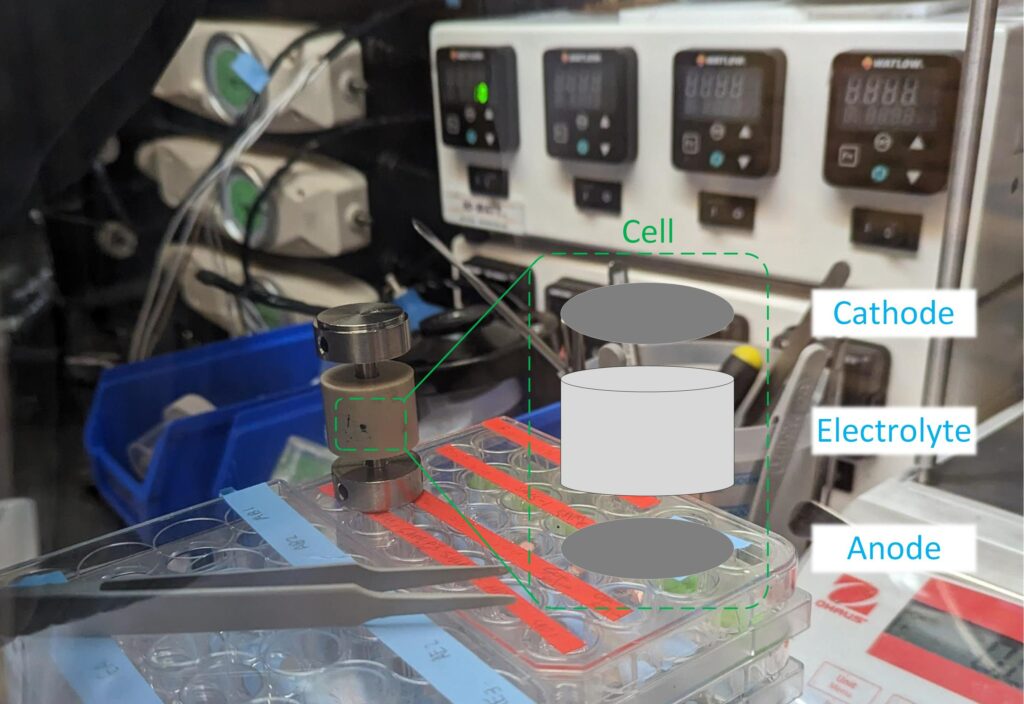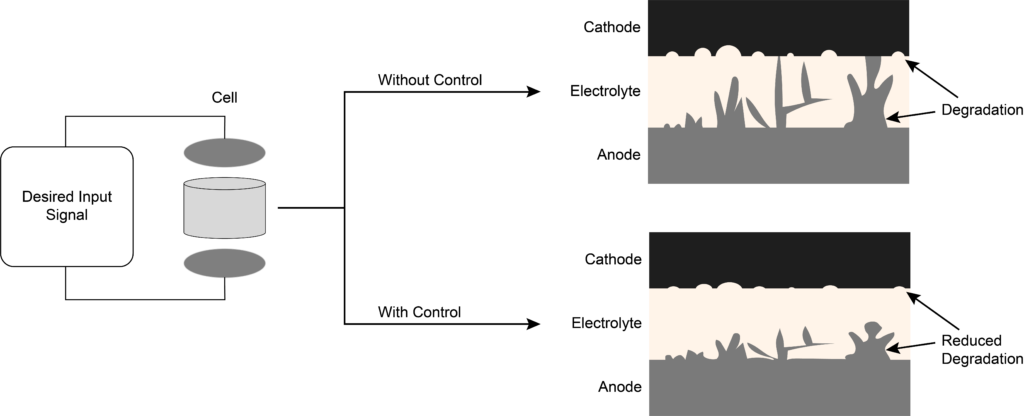Modeling and Control of Solid-State Batteries for the Regulation of Morphogenic Interfaces
Students: Keith Ng, Maxwell Wu
Due to the demand for higher-performing batteries, particularly in consumer products, solid-state batteries present an encouraging next-generation technology for their advantages in energy density, reduced flammability risk, and charging capability. However, compared to current conventional batteries with a liquid electrolyte, the interfaces (i.e., between the electrodes and electrolyte) are currently unstable and poorly controlled, resulting in severe degradation and failure of the cell. This project aims to develop a control and decision-making framework to: 1) provide real-time regulation of the interface by driving dynamic morphogenic processes; and 2) use off-line learning to identify performance trends and metrics to guide the interface design.
Game-theoretic Control for Maximizing Wind Farm Energy Production
Student: Maxwell Wu
The development of high-performing strategies for maximizing the energy production of wind farms through model-based control remains a challenging task due to the complexity of estimating the interactions between the turbines and wind field environment in high fidelity. Namely, accurately capturing wake propagation behaviors behind upstream turbines and their effects on downstream turbine energy production requires many labor-intensive experiments or computationally expensive simulations to be conducted. This research addresses this issue by borrowing concepts from game theory wherein the wind farm and the wind environment are treated as reward-maximizing agents in a noncooperative game. By subsequently leveraging historical experiment/simulation data in conjunction with numerically tractable low-fidelity wake models, developed controllers can rapidly ‘learn’ a high-performing control policy to reduce the number of experiments/simulations that need to be performed.


